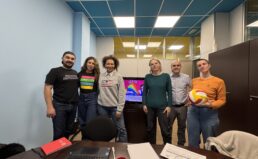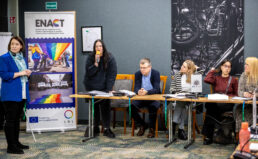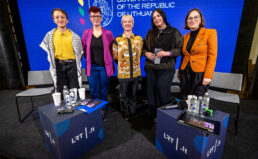On 2d and 3d of February, 2015 LGL organized the National Equality and Diversity Forum (NEDF) advocacy training for NEDF‘s organizations. The training was designed to increase the NEDF‘s partners‘ skills to actively represent the general objectives and priorities of the forum and it‘s public policy.
The two-day training focused on advocacy and engaging in human rights policy-making and decision-making processes. The goal was to empower the representatives of the partner organizations to work not only in the field of narrow sectorial interest, but also to represent the common goals and priorities of the Forum in mainstreaming non-discrimination more effectively.
The training program has been prepared in accordance with the interests of participants in the training and with the skills and priorities of human rights advocacy. The head of NEDF‘s advocacy training, LGL expert Tomas Vytautas Raskevičius, not only gave presentations on the effective delivery of the Forum’s work and the search of social partners, but also invited the training participants to actively engage in group work .
By participating in the simulations and interactive forum sessions, the partner organizations had the chance to get to know the members of other organizations and had an opportunity to „try on“ different identities of a variety of social groups. The first day of training, culminating with the detective game „Fatal fight for the crown“, revealed remarkable acting abilities and their creativity in achieving shared objectives of the training participants.
- LGL photo
- LGL photo
- LGL photo
- LGL photo
- LGL photo
- LGL photo
- LGL photo
- LGL photo
- LGL photo
- LGL photo
- LGL photo
- LGL photo
- LGL photo
- LGL photo
- LGL photo
- LGL photo
- LGL photo
 The event was organized as part of the project “Consolidating Sustainable Development of National Equality and Diversity Forum (NEDF)” which is supported by the NGO Programme Lithuania funded by EEA Grants.
The event was organized as part of the project “Consolidating Sustainable Development of National Equality and Diversity Forum (NEDF)” which is supported by the NGO Programme Lithuania funded by EEA Grants.
The event was organized as part of the project “C.O.D.E: Coming out for Diversity and Equality” which is funded by the European Union employment and social solidarity program PROGRESS.





















